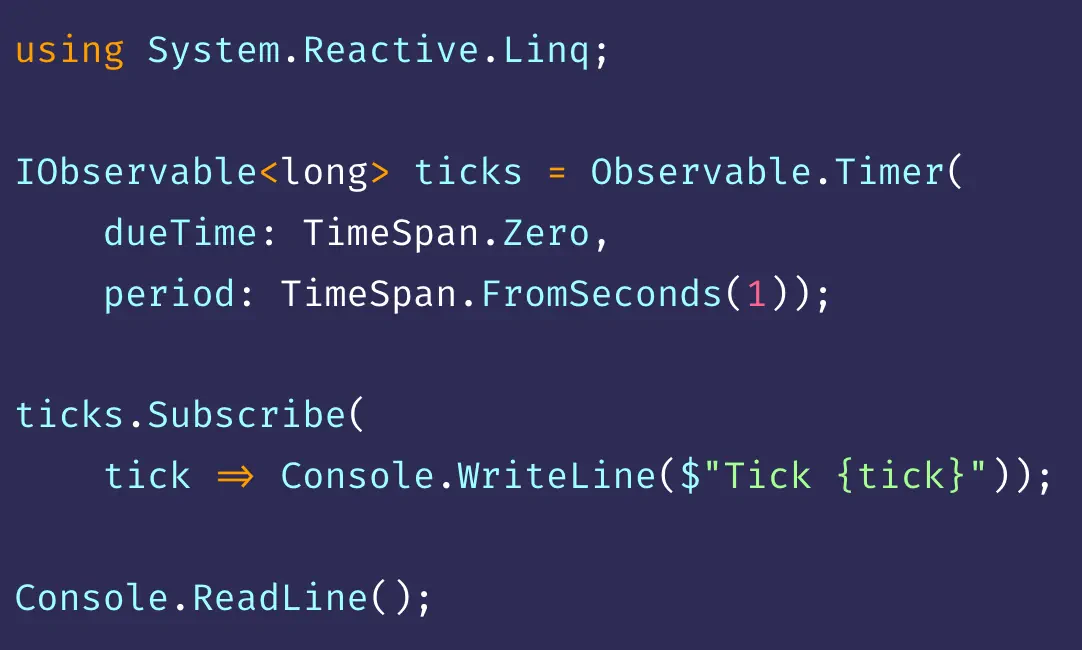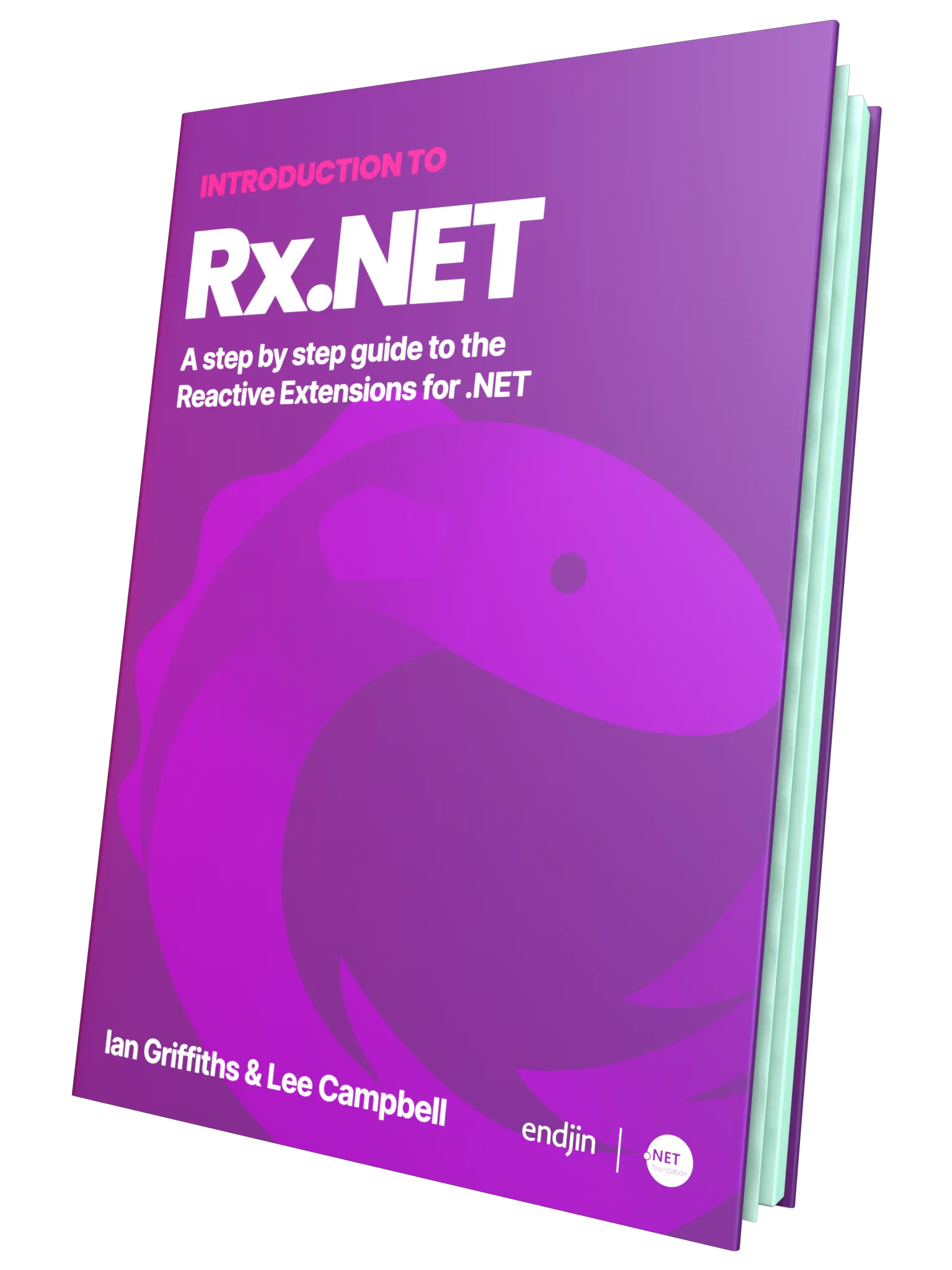Learn Reactive Programming with the Reactive Extensions for .NET
Reactive programming provides clarity when our code needs to respond to events. The Rx.NET libraries (150m+ downloads) were designed to enable cloud-native applications to process live data in reliable, predictable ways.
This book explains the vital abstractions that underpin Rx, and shows how to exploit the powerful and extensive functionality built into the Rx.NET libraries.
Read Introduction to Rx.NET
